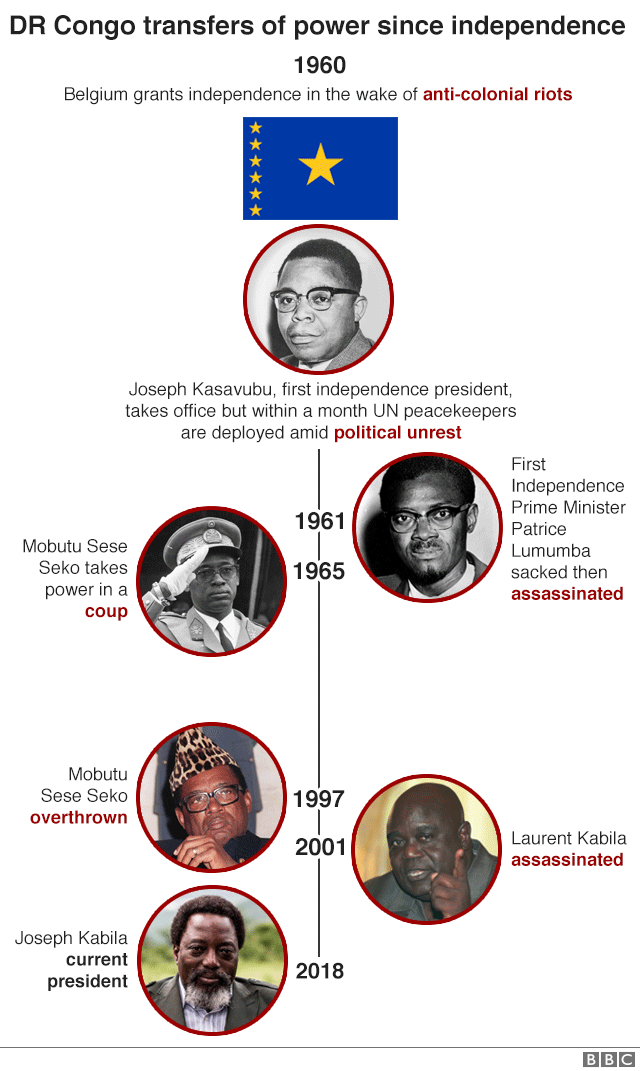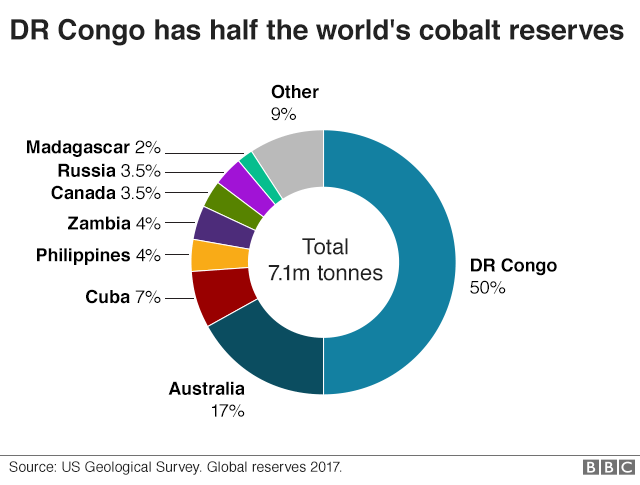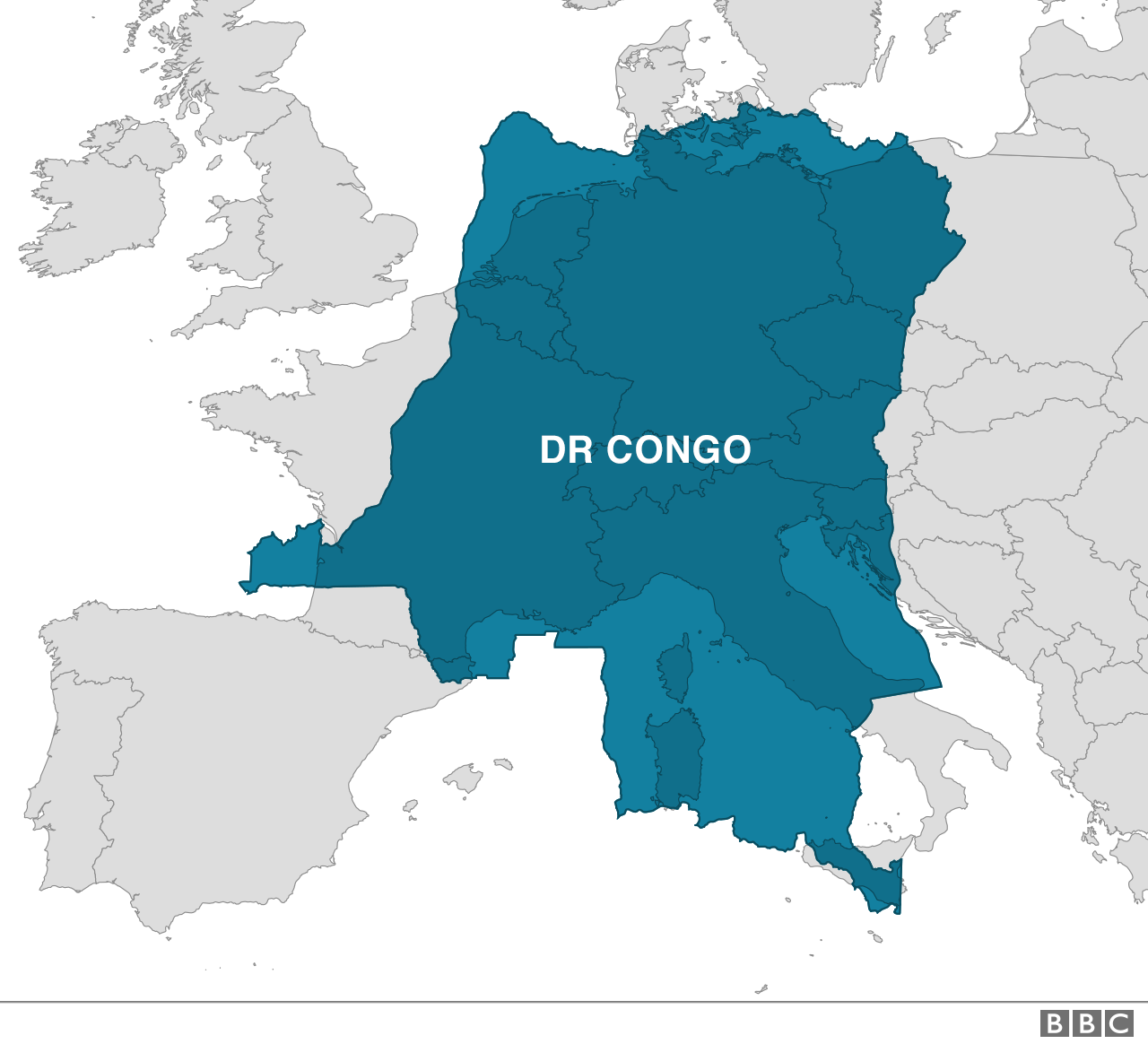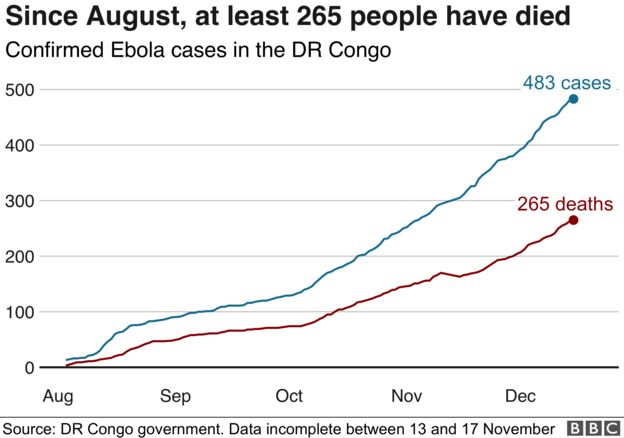 The Democratic Republic of Congo – the world’s leading producer of cobalt, used to power mobile phones and electric cars – held landmark elections in most of the country.
The Democratic Republic of Congo – the world’s leading producer of cobalt, used to power mobile phones and electric cars – held landmark elections in most of the country.
Three frontrunners have emerged in the race to succeed President Joseph Kabila.
Here are five things to know about the country that through its mineral resources plays a vital role in the world economy:
1) There has never been a peaceful transfer of power Since independence in 1960 violence has always accompanied the transfer of power from one leader to another.
Since independence in 1960 violence has always accompanied the transfer of power from one leader to another.
Joseph Kasavubu became president following the 1960 election, held a month before independence, and Patrice Lumumba became the prime minister.
But Lumumba was later sacked after a power struggle. In 1961, interference by former colonial power Belgium led to him being handed over to rebels who executed him, cut up his body and dissolved it in acid.
The power behind the throne in the early years was army chief Mobutu Sese Seko, who became president following a coup in 1965.
2) A land of riches
The country is central to the boom in electric car sales.
Among a wealth of other metals, DR Congo is thought to have more than half of the world’s supply of cobalt – an essential ingredient in the batteries that power electric vehicles and mobile phones.
In theory, the reserves of cobalt and other minerals like diamonds, copper and gold, should make DR Congo one of the richest countries in Africa, but its people are among the poorest.
DR Congo has been exploited for its wealth since the first European explorers arrived in the 15th Century.
3) It is a very big place
DR Congo is about the size of mainland western Europe.
Its poor infrastructure makes it very difficult to get around and presents logistical challenges to organising the election.
The country’s only super-highway is the Congo River, and there are no major roads linking the west to the east.
The government has not taken up the offer of logistical help from the United Nations, which has had a peacekeeping force in the country for nearly 20 years
4) Battery-powered voting?
Large parts of DR Congo are without running water or regular power, and that is a concern when ballots are cast using electronic voting machines.
Though electronic voting has been used elsewhere, this is the first time this exact machine will be tried, raising worries that it is untested in an election scenario.
5) War and Ebola destabilising the east
The eastern area of DR Congo has been worst-affected by war over the past two decades.
Scores of militant groups operate across the country but the biggest security challenge at the moment is Beni in North Kivu.